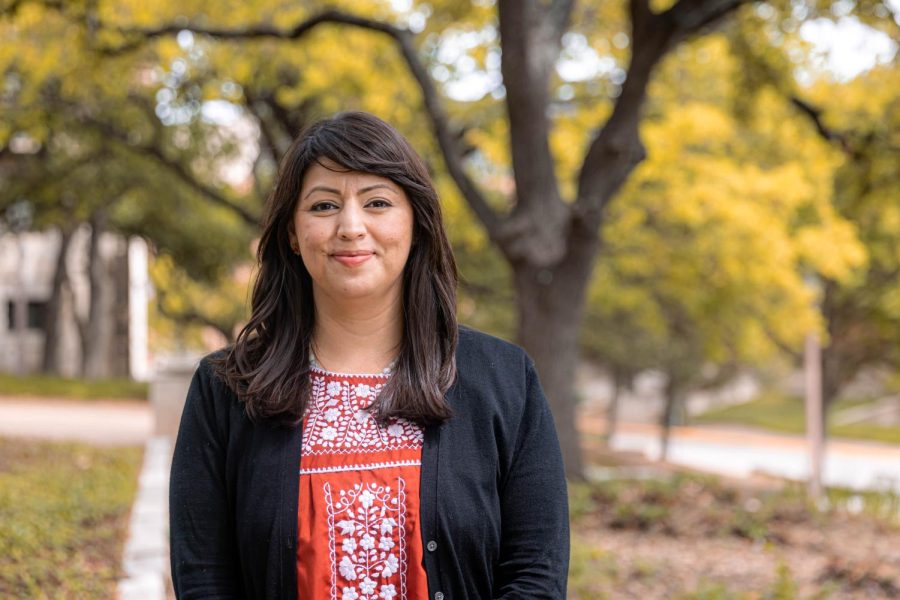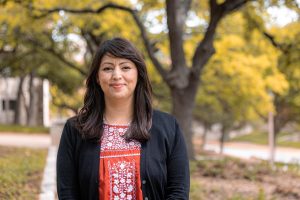UT history professor named USA Today Woman of the Year
On March 28, UT-Austin associate professor Monica Muñoz Martinez poses outside of a history building on campus. Recently, Martinez was named USA Today Woman of the Year.
March 30, 2023
USA Today’s Women of the Year project recognized UT professor Monica Muñoz Martinez as a national honoree for her work shedding light on the history of Mexican Americans in Texas during the 20th century.
The project honors influential women who leave positive societal impacts with former first lady Michelle Obama, the women of the 118th Congress, and Sandra Day O’Connor, the first female Supreme Court Justice, among the other honorees.
Martinez pioneered Mapping Violence: Racial Terror in Texas 1900-1930, a digital project which serves to rediscover and focus on stories of racial violence in Texas. She also spearheads Refusing to Forget, a nonprofit organization which brings attention to the state-sanctioned violence toward ethnic Mexicans along the U.S.-Mexico border in the early 20th century.
“It’s a uniquely important practice as a historian, that I need to bring together and find archival materials that can help humanize the victim of a lynching, for example,” Martinez said. “That requires going into local archives and interviewing relatives. Learning and pulling from different resources to have a fuller point of view is so important and satisfying in different ways.”
The two projects largely drew inspiration from research initiatives she oversaw during her time teaching at Brown University and developing her postdoctoral research at UT’s Center for Mexican American Studies, Martinez said. Her work comes amidst recent calls from historians for more inclusive storytelling within the field.
Walter Buenger, Texas State Historical Association’s chief historian, said he worked with Martinez in several capacities for over five years. He said he believes Martinez’s work embraces dignity, honesty and accuracy.
“History is not always as honest as it might be; Sources sometimes have to be dug out with great care and in unusual places,” Texas history professor Buenger said. “As long as the sources are … written by government officials, history is going to take a slant that is elite, Anglo government-oriented. Her work to develop this alternative, expanded, archival base and tell a more honest history is important and very much respected.”
When teaching on Mexican American history, Martinez said emphasizing mindfulness brings about meaningful discussion with students. Kassandra Araque, a student in Martinez’s History of Mexican Americans in the U.S. class, said they appreciate the open and informative approach to education.
“(Martinez) does a really good job of making the subject real, because we don’t really learn about Mexican history in America,” journalism sophomore Araque said. “But with her, I know this isn’t a Wikipedia page I’m reading. She almost always has her own story or some sort of context.”
Martinez said she hopes students continue to make personal connections to a more complete history in a way that will benefit their families and communities.
“There’s been a long-standing call for more inclusive histories that tell the fuller story of Texas and incorporate Mexican American studies,” Martinez said. “The vast majority of Texans think students should have access to truthful accounts of the past, even if that requires honest or difficult conversation. Generations of students deserve to learn from those histories.”












